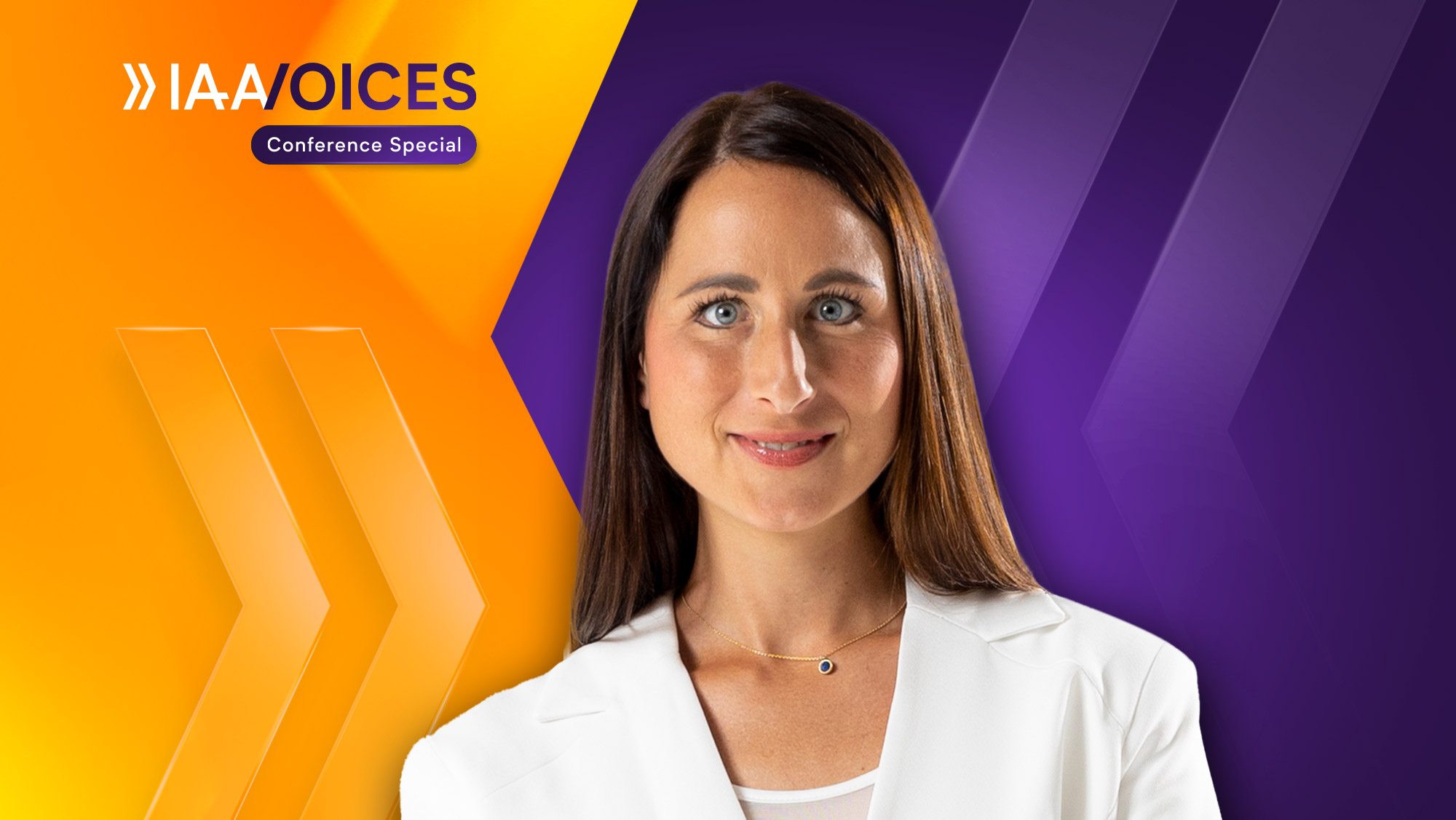
Christina Diem-Puello comes from a 100-year-old cycling dynasty and is the founder and CEO of DD Deutsche Dienstrad GmbH, a technology leader and innovation driver in the field of mobility.
As President of the Association of Women Entrepreneurs in Germany (VdU), she represents the female voice of the German business community—especially on issues of gender equality and economic policy. Her work focuses on promoting female entrepreneurship, supporting women in business succession and startups, and strengthening Germany as a center of economic innovation.
1. What motivated you to participate in IAA MOBILITY 2025? And what do you expect from your participation?
For me, IAA MOBILITY is a must-attend event – it symbolizes the paradigm shift in mobility and is one of the most important platforms for visionaries, decision-makers, and changemakers. We are in the midst of a fundamental transformation, where connectivity, sustainability, and digital solutions take center stage. That’s exactly where we come in with Deutsche Dienstrad: we bring movement into companies and demonstrate what a new, intelligent mobility architecture can look like. We actively shape sustainable urban mobility – across industries, with low emissions and digital solutions. I look forward to inspiring conversations, new partnerships, and impulses to further establish bike leasing as a core component of modern mobility concepts.
2. Which mobility concept currently inspires you the most and why?
Right now, I’m particularly excited by the idea of “Mobility as a Benefit.” Mobility is more than just logistics: it is an integral part of modern work environments, infrastructure, and even sectors like real estate. It allows for the seamless combination of different modes of transportation across sectors. It offers employees freedom, health, and climate protection while helping companies position themselves as attractive employers. Most importantly, this approach puts people and the environment at the center, creates flexibility, and is a key building block in the journey toward more livable cities.
3. What innovations in your field will most change the way we move around cities in the next five years?
I firmly believe that digital platforms and intelligent interfaces will revolutionize urban mobility and drive massive change. Bike leasing is no longer a niche offering. With bike leasing models, municipalities, companies, and employees can design their mobility flexibly, sustainably, and with tax benefits. In five years, company bikes will be just as commonplace as laptops on desks.
4. How do you promote the integration of different mobility forms to create a seamless and efficient transportation infrastructure?
By thinking about mobility holistically. Through partnerships, we deliberately create interfaces with other mobility forms. Our Deutsche Dienstrad MobilityHub connects digital booking processes with physical infrastructure – regionally, networked, and user-friendly. We work closely with retailers, cities, and employers. To me, it’s clear: only by combining bikes, public transport, and sharing services can we achieve a true mobility transition. We need bridge-builders – and that’s exactly what we are at Deutsche Dienstrad.
5. How do you see the role of public and private partnerships in promoting innovative mobility solutions?
They are the key because the mobility transition can only succeed if business and politics work together. We need reliable frameworks, digital administrative processes, and the courage to implement change. At the same time, the private sector must take responsibility – with smart solutions that are scalable and inclusive.
6. What are the biggest challenges you currently face in your segment, and how are you addressing them?
We deal daily with administrative red tape, slow digital processes, and a “we’ve always done it this way” mindset. But instead of complaining, we seek solutions. We use streamlined digital tools, raise awareness, and follow a clear values-based approach. Our goal is to make mobility tangible, emotionally engaging, and attractive from a tax perspective.
7. How important is user experience to you, and how do you gather and integrate user feedback?
Customer experience is not an add-on for us – it’s the core of our product. Our platforms are intuitive, digital, and designed to delight. At the same time, we actively listen – whether in B2B client meetings or through user feedback loops. The MobilityHub thrives on dialogue and constant improvement. We don’t see our customers as a target group, but as co-creators of our solutions.
8. Which essential future topic receives too little attention from the public?
Healthy mobility. The connection between physical activity, mental health, and workplace absenteeism is enormous, yet still a marginal topic. Company bikes can not only reduce CO₂ emissions but also promote health. This deserves much more attention – especially in the context of corporate mobility.
9. In which area of mobility do you see the greatest potential and where the greatest need for improvement?
I see the greatest potential in corporate mobility, especially among small and medium-sized enterprises, and in sustainable infrastructure. Many companies are unaware of the innovation potential within their mobility strategies. At the same time, there is huge room for improvement in digital infrastructure, regulatory clarity, and open-mindedness. To unleash the full potential of mobility, we need a new mindset.
10. IAA MOBILITY is the leading global mobility platform, bringing together innovators from all spectra of mobility. Who do you want to connect with this coming September and why?
I want to connect with those who don’t just talk about change but actively shape it – from startups to large corporations, from urban planners to mobility researchers. Cross-industry alliances are especially important to me, because only together can we bring movement into the economy, into cities, and into people’s mindsets. I’m convinced that we can achieve great things if we pool our strengths.